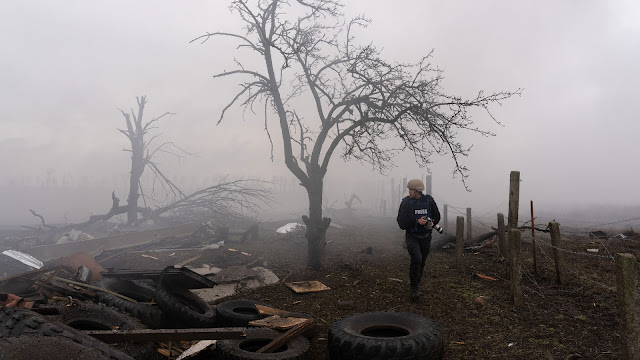Pregnancy and the Not-Quite-Human
by Alissa Berman

I have two films that should never be compared: Titane, directed by Julia Ducournau and Breaking Dawn Part One from the Twilight Saga. Titane is touching, has a killer soundtrack, and a fresh take on childhood trauma. Breaking Dawn is simply a bad movie. It lost me during the completely agonizing scene of Jacob walking up three flights of stairs in the Cullens’ house. The three cameras literally follow him up every single step. They are, however, both examples of body horror, a subgenre of horror that relies on distorting the human body. Its key characteristic is grotesque bodily transformations and portraying intense physical experiences.
The female protagonists of both films, Bella in Twilight and Alexia in Titane, accidentally become pregnant with initially unwanted fetuses. Neither pregnancy was supposed to be possible and, as a consequence, their bodies change and grow in abnormal ways. Bella’s ribs break from the inside, and she grows gaunter each day as her vampire-human hybrid grows. Alexia got pregnant after having sex with a car and the resultant fetus tears her skin open, a festering sore on her side grows and grows, and motor oil leaks out of her body.
When carrying children, the women are able to feel previously inaccessible desires, physically represented as their bodies change. Bella pushes her body to the absolute limit, growing gaunter by the day. She has to drink blood as a human—something that shouldn’t have been possible—to save the fetus. The relief on her face as she sips the blood from a cheap styrofoam cup is palpable and brings her one step closer to being a vampire, her ultimate desire. Carrying that being transforms her body into something closer to what she covets even as it essentially kills her. Alexia similarly experiences the expression of her desires: proof that she can make human connections. The beings they carry wreak havoc on their bodies and tear apart their self hoods, ultimately revealing their capacity for humanity and their abilities to incorporate another being—other, previously unknowable aspects of themselves—into their bodies.


Comments
Post a Comment